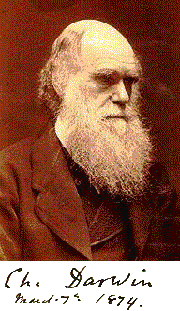 |
Evolution Links to our Past News of the Present Insight for the Future |

© Linnean Society of London |
|
|
|
In chatrooms and creationism websites the claim is often made that evolution is "only a theory" or that it is not, and should not be taught as, a "fact." Most often these claims arise out of the need for fundamentalist believers to defend non-negotiable elements of faith. Semantical arguments are also made by students recently introduced to elementary courses in philosophy and logic. In other cases questions are raised by persons honestly unaware of the definitions and methods of science.
|
| Paul R. Ehrlich in Human Natures: Genes, Cultures and the Human Prospect, p. 74. |
|
Scientific hypotheses are, in one way or another, tested against nature -- the "real world" that all scientists conventionally agree is "out there."1 Only when hypotheses are sufficiently tested and bind together information from relatively diverse areas that previously had not been connected do they properly become theories. But that is the opposite of the popular understanding of the term; it's scientific meaning is much closer to that of the word fact in common parlance.2 Theories embody the highest level of certainty for comprehensive ideas in science. Thus, when someone claims that evolution is "only a theory," it's roughly equivalent to saying that the proposition that the Earth circles the sun rather than vice versa is "only a theory." Evolution is, in fact, a very useful theory. [underscore added]
|
| Stephen J. Gould Excerpted from Discover Magazine (May, 1981). |
|
In the American vernacular, "theory" often means "imperfect fact" - part of a hierarchy of confidence running downhill from fact to theory to hypothesis to guess. Thus the power of the creationist argument: evolution is "only" a theory and intense debate now rages about many aspects of the theory.
|
| Additional References |
|
Scientific Laws, Hypotheses, and Theories by Jerry Wilson.
|
Books | Botany | Cell Biology | Chemistry | Creationism | Current News | Darwiniana
Dict. / Encyclo. | Ecology | Education | Essays | Eugenics | Evolution | Fossil Record
Genetics | Geology | Gouldiana | Health | Homework | Human Origins | Intermediates
Math | Museums | Origin of Life | Paleontology | Photos | Physics | Reference Aids
Science Journals | Sociobiology | Taxonomy | Transitionals | The Universe | Zoology
factortheory.htm Last Updated April 22, 2011 Links verified April 22, 2011